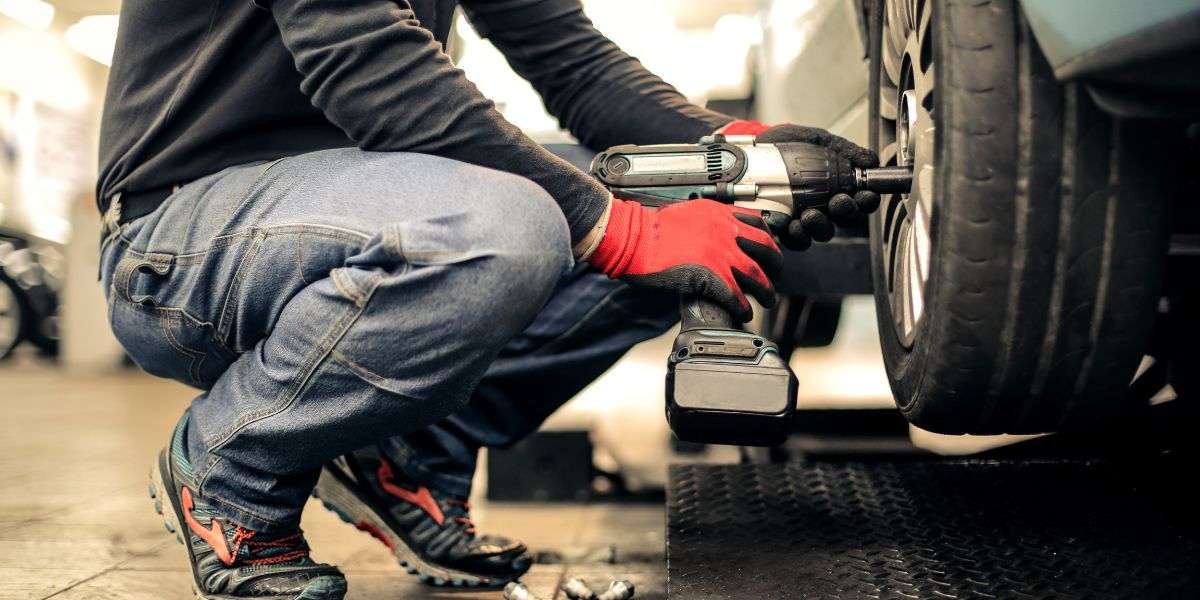- Empty cart.
- Continue Shopping
Mechanical Gloves Properties and Applications

Mechanical gloves are highly used by workers who operate heavy machines, power tools, and other machine handling.
In various industries, the use of personal protective equipment (PPE) is crucial to ensuring the safety and well-being of workers.
Among the many forms of PPE available, mechanical gloves have emerged as an essential tool for professionals engaged in tasks that involve physical labor, handling heavy objects, or working with machinery.
These gloves offer a range of benefits, including enhanced grip, protection against abrasions and impacts, and increased dexterity.
This article will delve into the details of mechanical gloves, highlighting their features, applications, and advantages in the workplace.
The best mechanical gloves should possess the following properties:
Enhanced Grip:
Mechanical gloves are designed with materials that offer superior grip capabilities.
They often incorporate specialized coatings such as nitrile, latex, or polyurethane, which provide excellent traction and prevent objects from slipping from the wearer’s hands.
The enhanced grip ensures that workers can maintain control and stability, thereby minimizing the risk of accidents, dropped items, and potential injuries.
Protection Against Abrasions and Impacts:
Mechanical gloves act as a protective barrier, shielding the hands from abrasions, cuts, and impacts.
These safety gloves are typically constructed using durable materials such as leather, synthetic fabrics, or high-performance fibers.
Reinforced padding or cushioning may be included in critical areas, such as the palms and knuckles, to absorb shocks and reduce the impact force on the hands.
By offering reliable protection, mechanical gloves reduce the likelihood of injuries and allow workers to handle tasks with confidence.
Increased Dexterity:
Maintaining dexterity and fine motor skills is essential in many work environments.
Mechanical gloves are designed with this in mind, ensuring that workers can perform intricate tasks without compromising their abilities.
These gloves are often engineered with flexible materials and ergonomic designs, allowing for a natural range of motion and precise finger movements.
As a result, workers can handle small components, operate machinery, and perform delicate tasks with ease while still benefiting from the protective features of the gloves.
Resistance to Hazards:
Certain industries expose workers to specific hazards, such as chemicals, heat, or electricity.
Mechanical gloves can be customized to address these challenges.
For example, chemical-resistant gloves are made from materials that provide a barrier against hazardous substances, safeguarding the skin from corrosive or toxic chemicals.
Similarly, heat-resistant gloves are built with specialized materials that can withstand high temperatures, protecting the hands from burns.
Electrically insulated gloves are crucial for individuals working with live electrical equipment, preventing the risk of electric shocks.
The ability to tailor mechanical gloves to different hazards ensures the safety and well-being of workers in diverse environments.
Comfort and Breathability:
Long hours of work can take a toll on the hands, making comfort a crucial factor in glove selection.
Mechanical gloves are designed with ergonomic considerations, ensuring a comfortable fit and minimizing hand fatigue.
Many gloves feature adjustable closures or elasticized wristbands to provide a secure yet comfortable fit.
Additionally, modern designs often incorporate breathable materials and ventilation features to allow air circulation and reduce sweating, enhancing overall comfort during prolonged use.
Durability and Longevity:
Mechanical gloves are engineered to withstand the rigors of demanding work conditions. They are built to be durable and long-lasting, capable of withstanding repeated use and exposure to rough surfaces and materials.
The materials used, such as synthetic fibers or leather, are chosen for their strength and resistance to wear and tear.
The longevity of mechanical gloves ensures that workers can rely on them for extended periods, reducing the need for frequent replacements and saving costs in the long run.
Compliance with Safety Regulations:
In many industries, compliance with safety regulations and standards is essential.
Mechanical gloves often meet or exceed these requirements, ensuring that workers are adequately protected.
Gloves manufactured with adherence to recognized safety standards provide employers and employees with confidence in their effectiveness and reliability. Choosing certified mechanical gloves demonstrates a commitment to workplace safety and regulatory compliance.
Easy Maintenance and Cleaning:
Maintaining cleanliness and hygiene in the workplace is crucial, particularly when it comes to personal protective equipment.
Mechanical gloves are designed with ease of maintenance in mind.
Many gloves can be easily cleaned, either through machine washing or simple hand washing with mild detergents.
This feature ensures that gloves can be kept clean, odor-free, and in optimal condition, promoting better hygiene practices and extending the lifespan of the gloves.
Availability of Size and Fit Options:
Hand sizes and shapes can vary significantly among individuals.
To ensure optimal comfort and performance, mechanical gloves are available in a range of sizes and fit options.
This allows workers to find gloves that match their hand measurements, ensuring a snug and secure fit.
Gloves that fit well provide better dexterity, reduce the risk of slippage, and enhance overall comfort, thereby improving productivity and reducing hand fatigue.
Brand Reputation and Customer Reviews:
When choosing mechanical gloves, considering the reputation of the brand and customer reviews can provide valuable insights. Established brands with a strong track record in producing reliable and high-quality PPE are often a preferred choice. Customer reviews and testimonials offer firsthand experiences and feedback, helping individuals and organizations make informed decisions about which gloves best suit their specific needs.
Applications
Mechanical gloves are versatile in their applications, making them suitable for a wide range of industries and tasks.
From construction and manufacturing to automotive and logistics, these gloves are designed to meet the specific needs of various work environments.
They are utilized by professionals such as mechanics, assembly line workers, warehouse personnel, electricians, plumbers, and more.
The versatility of mechanical gloves makes them a valuable investment for businesses across different sectors.
Conclusion
Mechanical gloves are indispensable tools in various industries, offering a range of benefits that enhance safety and performance.
With their superior grip, protection against abrasions and impacts, increased dexterity, resistance to hazards, and comfort features, these gloves provide workers with the confidence and protection they need to carry out their tasks efficiently.
By choosing mechanical gloves, individuals and organizations demonstrate their commitment to safety, ensuring the well-being of workers, and promoting a productive work environment.






